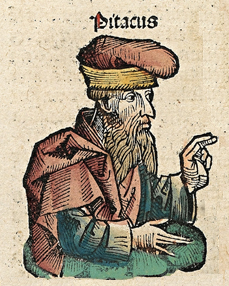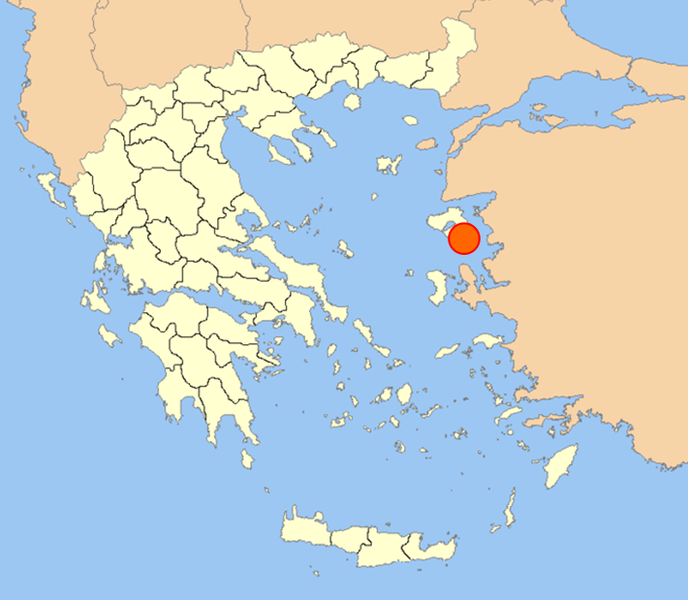<Back to Index>
- General of the Mytilenaean Army Pittacus of Mytilene (Πιττακός ο Μυτιληναίος), 640 B.C.
PAGE SPONSOR
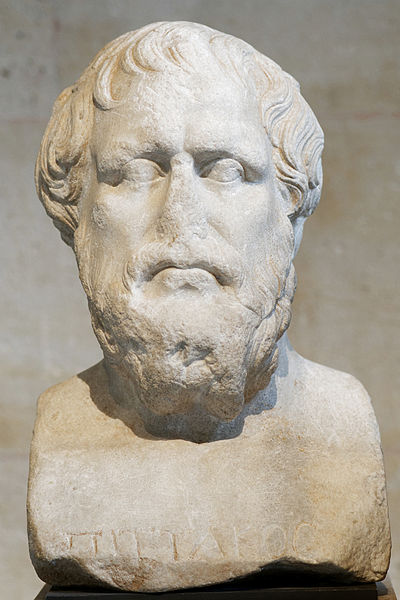
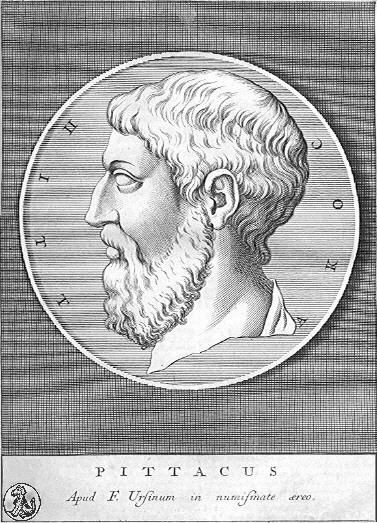
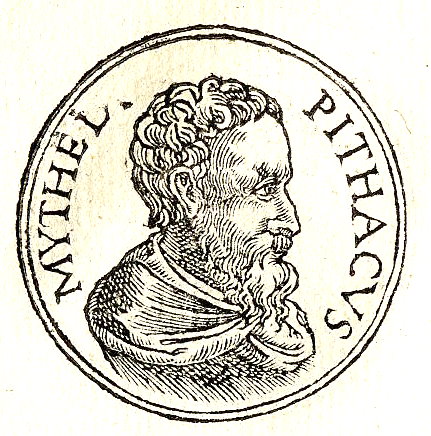
Pittacus (Greek: Πιττακός) (c. 640 - 568 BCE) was the son of Hyrradius and one of the Seven Sages of Greece. He was a native of Mytilene and the Mytilenaean general who, with his army, was victorious in the battle against the Athenians and their commander Phrynon. In consequence of this victory the Mytilenaeans held Pittacus in the greatest honour and presented the supreme power into his hands. After ten years of reign he resigned his position and the city and constitution were brought into good order.
When the Athenians were about to attack his city, Pittacus challenged their General to a single combat, with the understanding that the result should decide the war, and much bloodshed be thereby avoided. The challenge was accepted, and he killed his enemy with a broad sword. He was then chosen ruler of his city and governed for ten years, during which time he made laws in poetry — one of which was to this effect: "A crime committed by a person when drunk should receive double the punishment which it would merit if the offender were sober." His great motto was : "Do not to your neighbor what you would take ill from him." (The Golden Rule)
Some authors mention that he had a son called Tyrrhaeus. The legend says that his son was killed and when the murderer was brought before Pittacus, he dismissed the man, saying, "Pardon is better than repentance." Of this matter, Heraclitus says that he had got the murderer into his power and then he released him, saying, "Pardon is better than punishment."
It was a saying of Pittacus, that it is a hard thing to be really a good man. Others of his sayings were:
- "Whatever you do, do it well."
- "Even the Gods cannot strive against necessity."
- "Power shows the man."
- "Do not say beforehand what you are going to do; for if you fail, you will be laughed at."
- "Do not reproach a man with his misfortunes, fearing lest Nemesis may overtake you."
- "Forbear to speak evil not only of your friends, but also of your enemies."
- "Cultivate truth, good faith, experience, cleverness, sociability, and industry."
- "Know thy opportunity"
He flourished about the forty - second Olympiad. Having lived more than seventy years, he died in the third year of the fifty - second Olympiad (568 BCE).
In Protagoras (dialogue) of Plato, Prodicus labeled the aeolic dialect as barbarian, while referring to Pittacus of Mytilene.
He didn't know to distinguish the words correctly, being from Lesbos, and having been raised with a barbarian dialect.
